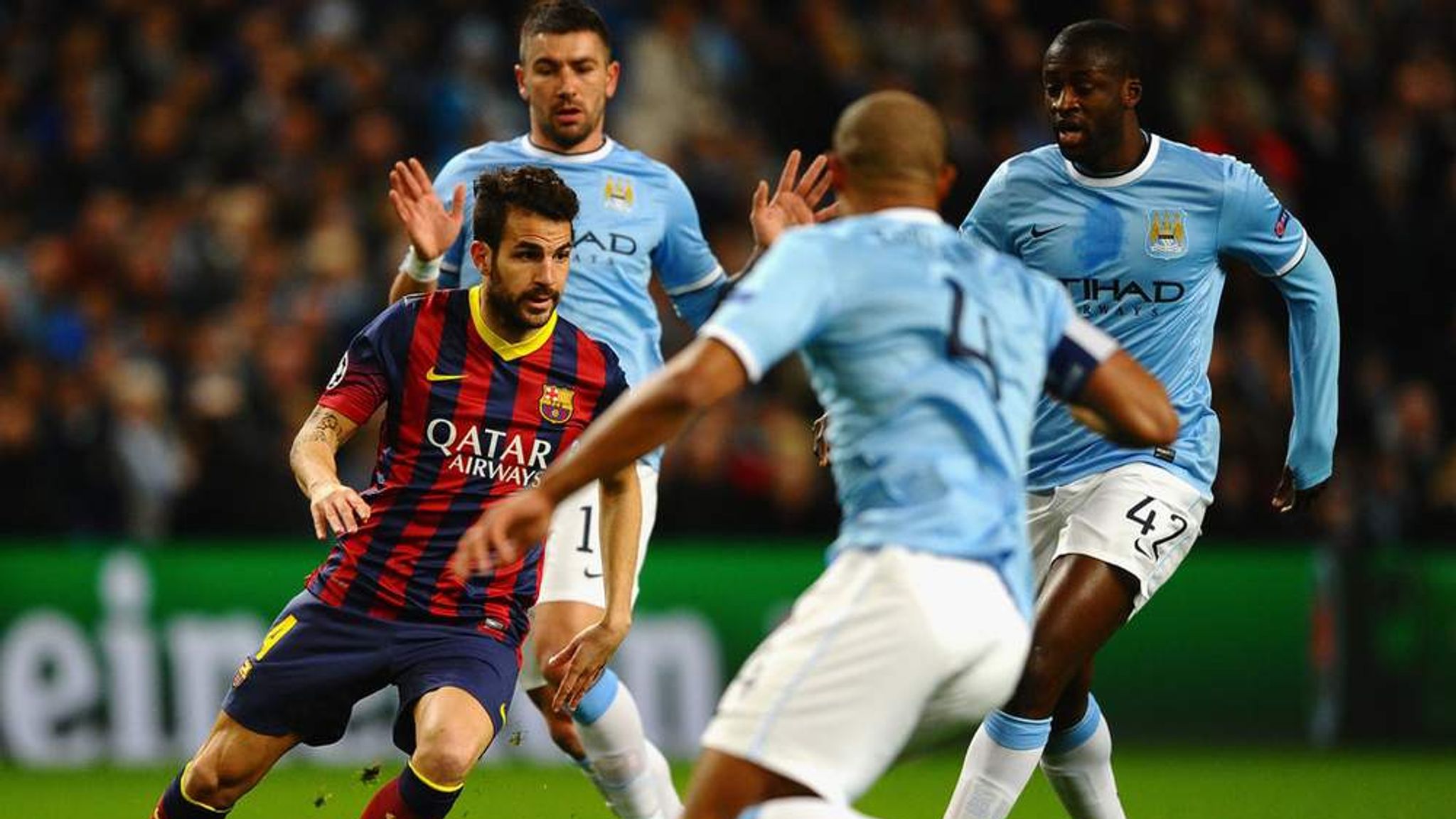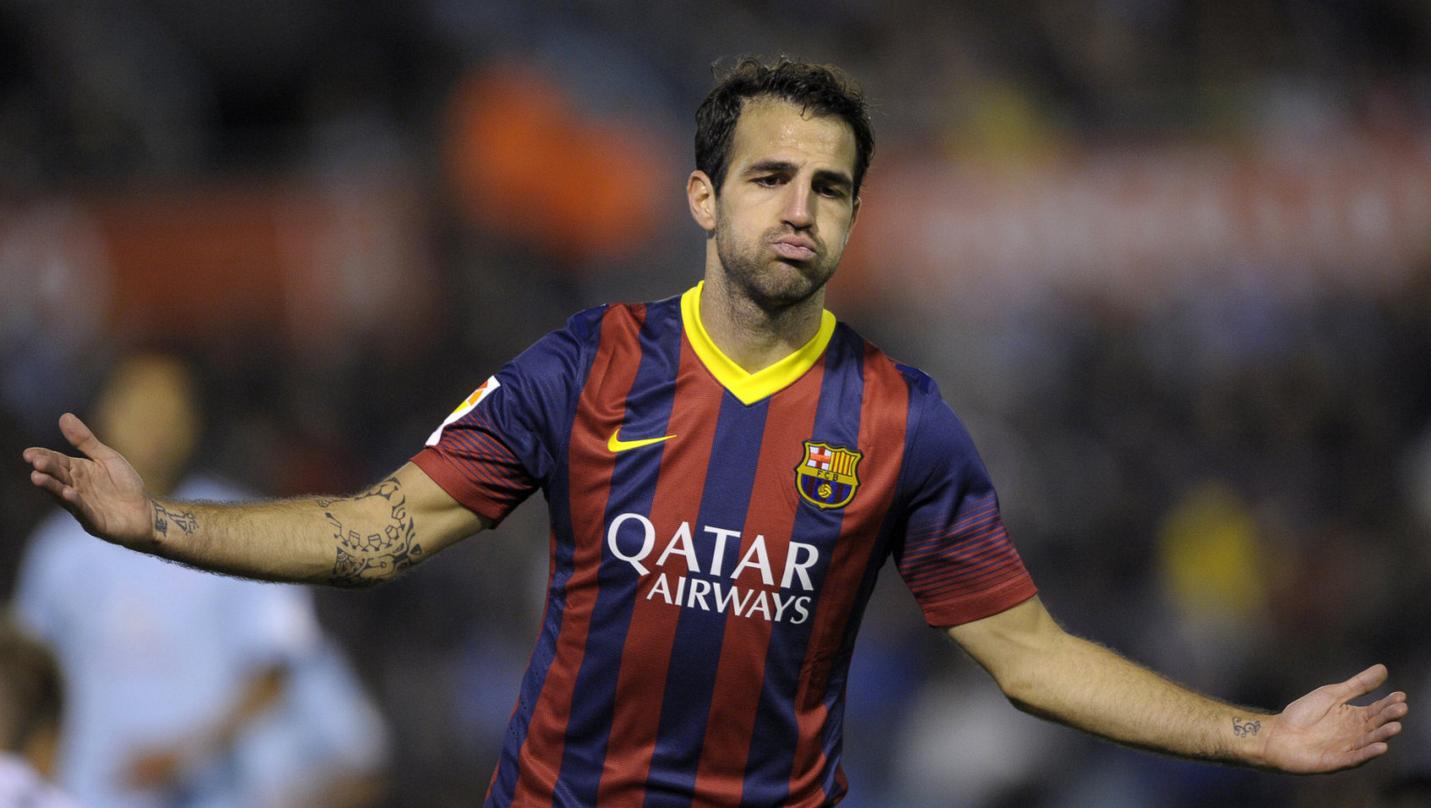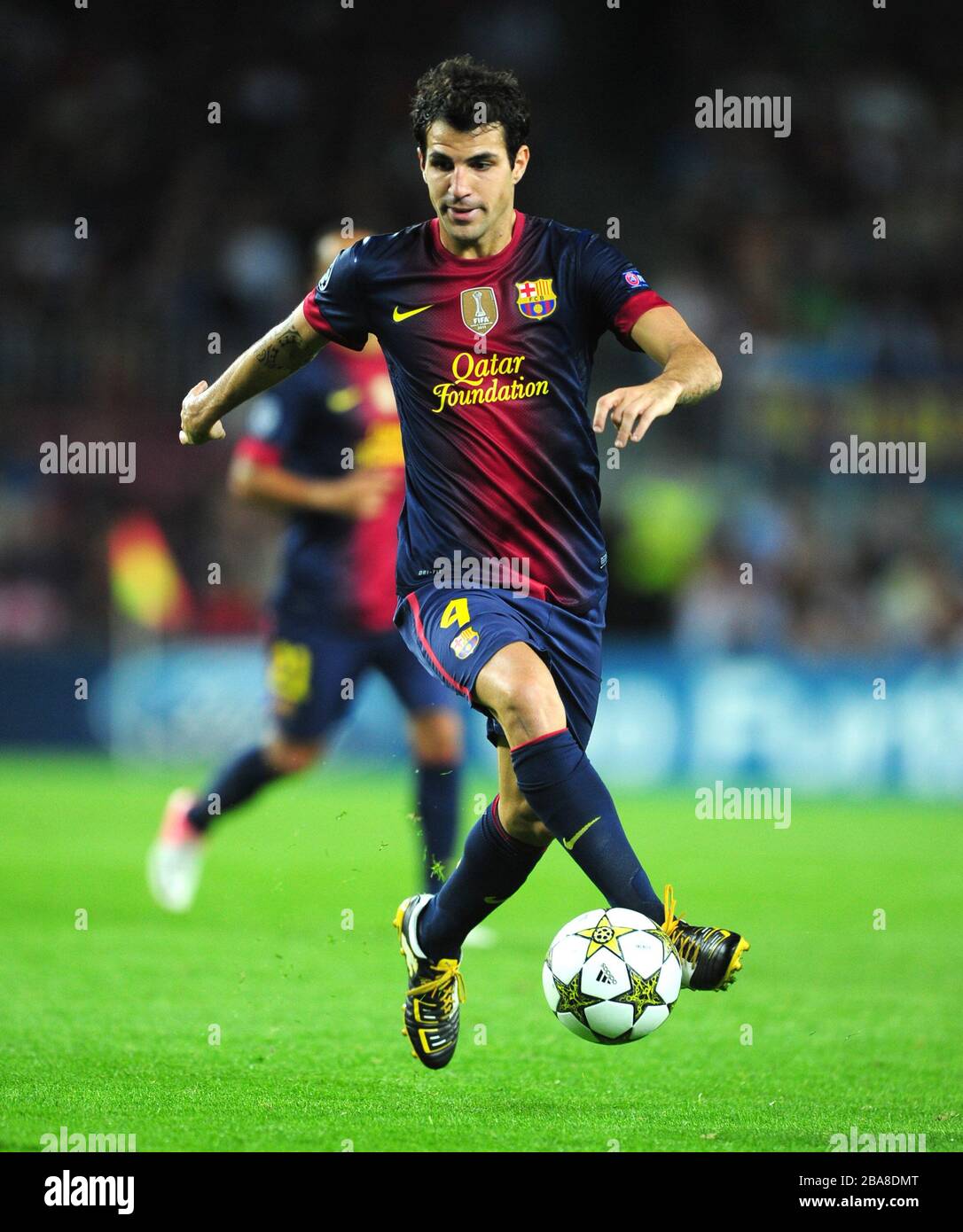Cesc Fabregas's Barcelona Journey: A Dream Fulfilled, A Legacy Forged
The return of Cesc Fabregas to Barcelona in 2011 was not just a transfer; it was a homecoming steeped in emotion, expectation, and the culmination of a long-held dream. After eight transformative years at Arsenal, where he blossomed from a promising La Masia graduate into one of the Premier League's finest midfielders and a club captain, Fabregas's desire to rejoin his boyhood club was palpable. This article delves into the intricate narrative of his time at Camp Nou, exploring the triumphs, the challenges, and the lasting impact of a player whose connection to Barcelona ran deeper than mere professional affiliation.
His tenure at FC Barcelona, though shorter than many had anticipated, was a period marked by significant silverware, tactical evolution, and the unique pressure of living up to the club's lofty standards. From the initial euphoria of his arrival to the bittersweet farewell, Fabregas's journey encapsulates the complexities of a modern footballing fairytale, a story woven into the rich tapestry of one of the world's most iconic clubs.
Table of Contents
- The Prodigal Son's Return: Cesc Fabregas's Barcelona Dream
- The Transfer Saga: A Homecoming Years in the Making
- Adapting to the Camp Nou: Cesc's Initial Impact and Tactical Role
- Glory and Silverware: Fabregas's Trophies with Barcelona
- Navigating Challenges: Consistency, Injuries, and Fan Expectations
- Managerial Transitions: Vilanova, Martino, and Fabregas's Evolving Role
- The Inevitable Farewell: Why Fabregas Left Barcelona
- Cesc Fabregas's Barcelona Legacy: A Complex Chapter
The Prodigal Son's Return: Cesc Fabregas's Barcelona Dream
Francesc "Cesc" Fàbregas Soler's journey began in Arenys de Mar, Catalonia, where his innate talent quickly caught the eye of Barcelona's famed La Masia academy. Joining at the tender age of 10, he quickly ascended through the youth ranks, playing alongside future legends like Lionel Messi and Gerard Piqué. However, the path to the senior team at Barcelona was incredibly competitive, and at 16, Fabregas made the bold decision to join Arsenal in 2003. It was a move that, at the time, seemed to be a temporary detour from his ultimate destination. Under Arsène Wenger's tutelage, he transformed into a world-class midfielder, renowned for his exquisite passing range, vision, and leadership qualities. He became Arsenal's youngest ever captain and the heartbeat of their team, but the lure of his boyhood club, FC Barcelona, remained a powerful undercurrent throughout his time in London. His exceptional performances for Arsenal, coupled with his deep roots in Catalonia, fueled constant speculation about his eventual return, setting the stage for one of football's most anticipated transfers.
Personal Data: Cesc Fabregas
| Full Name: | Francesc Fàbregas Soler |
| Born: | 4 May 1987 (age 37) |
| Place of Birth: | Arenys de Mar, Spain |
| Nationality: | Spanish |
| Height: | 1.79 m (5 ft 10 in) |
| Position: | Midfielder |
| Youth Career: | Mataró (1995–1997), Barcelona (1997–2003) |
| Senior Career (Selected): | Arsenal (2003–2011), Barcelona (2011–2014), Chelsea (2014–2019), Monaco (2019–2022), Como (2022–2023) |
| International Career: | Spain (2006–2016) |
The Transfer Saga: A Homecoming Years in the Making
The saga of Cesc Fabregas's return to Barcelona was one of the most protracted and publicly discussed transfers in modern football history. For several seasons leading up to 2011, the media was awash with reports linking him back to Camp Nou. Barcelona, keen to re-sign one of their own, made their intentions clear, with players like Xavi and Gerard Piqué openly expressing their desire for Fabregas to join them. Arsenal, however, were fiercely protective of their captain and talisman, repeatedly rejecting Barcelona's advances. Arsène Wenger, in particular, was determined to keep his star player, viewing him as central to Arsenal's future. The tension between the clubs grew, with Barcelona making multiple bids, each one rebuffed. Fabregas himself, while always professional, made no secret of his dream to play for Barcelona. This created an immense pressure cooker situation, with fans on both sides eagerly awaiting a resolution. Finally, in August 2011, after years of speculation and intense negotiations, a deal was struck. Barcelona paid an initial fee of approximately £29 million, with additional add-ons, to bring their prodigal son home. The announcement was met with widespread jubilation in Catalonia, marking the end of a long and often contentious transfer battle, and ushering in a new chapter for Cesc Fabregas at the club he loved.
Adapting to the Camp Nou: Cesc's Initial Impact and Tactical Role
Upon his arrival at Barcelona, Cesc Fabregas found himself in a squad already brimming with midfield maestros like Xavi Hernández, Andrés Iniesta, and Sergio Busquets. The challenge for Pep Guardiola was not just to integrate Fabregas, but to do so without disrupting the delicate balance of a team that had conquered Europe. Initially, Fabregas adapted seamlessly, showcasing his versatility by playing in various roles. He often featured as an attacking midfielder, a deeper central midfielder, and even famously as a "false nine" under Guardiola, a position that allowed him to exploit space between the lines and link up with Messi. His understanding of Barcelona's 'tiki-taka' philosophy, honed during his La Masia days, meant he rarely looked out of place. His ability to provide incisive passes, make late runs into the box, and contribute goals was immediately evident. In his debut season, he scored 15 goals and provided 20 assists across all competitions, a testament to his immediate impact and offensive prowess. This impressive start suggested that Fabregas was not just fitting in, but thriving, proving his worth and demonstrating why Barcelona had pursued him so relentlessly. His tactical intelligence and technical skill made him a valuable asset, adding another dimension to an already formidable Barcelona midfield.
Glory and Silverware: Fabregas's Trophies with Barcelona
Cesc Fabregas's time at Barcelona was undoubtedly marked by a significant haul of silverware, fulfilling his ambition to win major trophies with his boyhood club. His debut season, 2011-2012, saw him lift the UEFA Super Cup and the FIFA Club World Cup almost immediately after his arrival, adding to the Spanish Super Cup he won just days after signing. The pinnacle of his trophy collection came in the 2012-2013 season when Barcelona, under Tito Vilanova, dominated La Liga, securing the title with a remarkable 100 points. Fabregas played a crucial role in this triumph, contributing with goals and assists, and demonstrating his ability to perform consistently at the highest level in domestic competition. While the elusive Champions League title remained just out of reach during his tenure, his contributions to the team's domestic dominance and international club success were undeniable. He was an integral part of a Barcelona side that continued to play exhilarating football and collect accolades. His presence added depth and quality to an already world-class squad, ensuring that the team remained competitive on all fronts. His trophy cabinet from his time at Barcelona includes:
- La Liga: 2012–13
- Copa del Rey: 2011–12
- Supercopa de España: 2011, 2013
- UEFA Super Cup: 2011
- FIFA Club World Cup: 2011
These titles underscore a period of collective success for Barcelona and a personally rewarding chapter for Fabregas, who finally achieved his dream of winning major honours with the club he supported as a child.
Navigating Challenges: Consistency, Injuries, and Fan Expectations
Despite the silverware, Cesc Fabregas's time at Barcelona was not without its complexities and challenges. The weight of expectation, both from the club and its fervent fanbase, was immense. He was returning to a team considered one of the greatest of all time, with a midfield trio of Xavi, Iniesta, and Busquets that was almost untouchable. This created a unique set of circumstances that Fabregas had to navigate, often leading to scrutiny over his performances and consistency.
The Weight of Expectation: Filling Legendary Boots
Fabregas arrived at a Barcelona team that had perfected a style of play built around intricate passing and positional interchange. The midfield triumvirate of Xavi, Iniesta, and Busquets was not just effective; it was iconic. Fabregas, despite his immense talent, was often seen as competing for a spot with these legends. While he brought a more direct, goal-scoring threat than Xavi or Iniesta, he sometimes struggled to replicate the seamless, almost telepathic understanding that defined their play. Fans, accustomed to the unparalleled fluidity of the established midfield, sometimes grew impatient when Fabregas's style, though brilliant in its own right, didn't perfectly align with the existing rhythm. This constant comparison, fair or not, placed an enormous burden on him to consistently perform at an extraordinary level.
Inconsistent Form and Tactical Dilemmas
While Fabregas enjoyed periods of sublime form, particularly in his first season, there were also stretches where his influence waned. This inconsistency was often attributed to tactical dilemmas. Under Guardiola, he played in various roles, including the 'false nine', which yielded goals but perhaps took him away from his natural deep-lying playmaking position. When he played deeper, he was sometimes accused of not tracking back sufficiently or of being dispossessed in dangerous areas. The debate over his "best" position within the Barcelona system persisted throughout his tenure. Was he a true heir to Xavi, or was he a more advanced attacking midfielder? This lack of a fixed, undisputed role, combined with the sheer depth of talent, meant Fabregas sometimes struggled to assert himself as an undisputed starter in every crucial match, leading to questions about his long-term fit.
The Injury Woes
Like many elite athletes, Fabregas also contended with injuries during his time at Barcelona. While not constantly sidelined, recurring muscle issues and minor knocks sometimes disrupted his rhythm and prevented him from maintaining peak physical condition. These setbacks, though seemingly minor individually, could cumulatively impact a player's ability to perform consistently at the highest level, especially in a demanding system like Barcelona's. Recovering from an injury and then regaining match fitness and sharpness in a squad where competition for places was fierce added another layer of difficulty to his Camp Nou experience.
Managerial Transitions: Vilanova, Martino, and Fabregas's Evolving Role
Cesc Fabregas's three seasons at Barcelona coincided with significant managerial changes, each of which subtly influenced his role and standing within the squad. He arrived under Pep Guardiola, who initially experimented with Fabregas in various attacking roles, notably as a 'false nine'. This period saw Fabregas enjoy a prolific start in terms of goals and assists, benefiting from Guardiola's tactical ingenuity. However, Guardiola's departure at the end of the 2011-2012 season marked the end of an era and brought in Tito Vilanova. Under Vilanova, Fabregas continued to be a key player, particularly in the triumphant 2012-2013 La Liga campaign. Vilanova often deployed him in a more traditional central midfield role, allowing him to dictate play and link up with the forwards. This season saw Fabregas at his most consistent in terms of midfield contribution. Tragically, Vilanova's health issues led to his stepping down, and Gerardo "Tata" Martino took the helm for the 2013-2014 season. Martino's approach was perceived by some as a slight deviation from Barcelona's traditional tiki-taka, incorporating more direct play. For Fabregas, this meant a slightly different tactical emphasis. While he remained a regular starter, often playing in a deeper midfield role or as an advanced playmaker, the team's overall performance dipped slightly, and they ended the season with only the Spanish Super Cup. These managerial shifts, from Guardiola's innovative fluidity to Vilanova's continuity and Martino's pragmatic adjustments, meant Fabregas constantly had to adapt his game, which likely contributed to the perception of inconsistency in his overall Barcelona tenure.
The Inevitable Farewell: Why Fabregas Left Barcelona
After three seasons at Barcelona, Cesc Fabregas's second stint at the club came to an end in the summer of 2014, as he made a surprising move to Chelsea. The decision, though perhaps bittersweet, was rooted in a combination of factors. Primarily, Fabregas sought a more defined and consistent role within a team. Despite his significant contributions and numerous appearances, he never quite managed to displace Xavi or Iniesta as an undisputed, first-choice starter in Barcelona's most crucial matches. The fierce competition for places in the midfield, coupled with the tactical shifts under different managers, meant his position was often fluid. Furthermore, Barcelona themselves were undergoing a period of transition. Following a trophyless 2013-2014 season under Tata Martino, the club was looking to refresh its squad and potentially raise funds for new acquisitions. While Fabregas was a valuable asset, his sale represented an opportunity to generate significant transfer revenue, reportedly around £27 million. For Fabregas, the move to Chelsea offered a chance to return to the Premier League, a league where he had previously excelled, and to join a club where he was guaranteed a central role under José Mourinho. It was a pragmatic decision for both parties: Barcelona received a substantial fee, and Fabregas secured the consistent playing time and tactical prominence he desired. While leaving his boyhood club again was undoubtedly emotional, it allowed him to embark on another highly successful chapter of his career, proving his enduring quality in a new environment.
Cesc Fabregas's Barcelona Legacy: A Complex Chapter
Cesc Fabregas's time at Barcelona is a chapter in his career that evokes mixed feelings for many. On one hand, it was the fulfillment of a childhood dream, a period where he added significant trophies to his cabinet and played for the club he loved. On the other, it was a tenure often overshadowed by the almost impossibly high standards set by the legendary midfield he joined, leading to questions about whether he ever truly "belonged" in the same way as Xavi or Iniesta. His legacy is therefore complex, marked by both undeniable success and a lingering sense of unfulfilled potential in the eyes of some.
A Dream Fulfilled, Yet Unfinished
For Fabregas, returning to Barcelona was a deeply personal ambition. He came back a more mature, complete player than the teenager who left, and he contributed significantly to the team's success. Winning La Liga, the Copa del Rey, and various Super Cups with Barcelona were monumental achievements that validated his decision to return. He played over 150 games for the club, scoring 42 goals and providing 57 assists, impressive statistics by any measure for a midfielder. However, the ultimate prize, the Champions League, eluded him during his three years, a stark contrast to the two he won with Spain during the same period. This absence from his Barcelona trophy cabinet, combined with the constant rotation and the inability to secure a truly undisputed starting spot in every major game, left some feeling that his Barcelona story, while successful, felt somewhat incomplete compared to the narrative of a fully integrated, foundational player.
Impact on the Squad and Beyond
Despite the nuanced perception of his individual role, Fabregas's presence undoubtedly strengthened the Barcelona squad. He provided crucial depth, versatility, and a different dimension to their midfield. His ability to score goals from midfield and provide incisive through balls added a directness that complemented the intricate passing game. He was a vital component in teams that continued to dominate domestically and compete at the highest level in Europe. Beyond the statistics, his return was a powerful symbol of Barcelona's philosophy of bringing back its own, a testament to the enduring pull of La Masia. While his departure was amicable, it underscored the unique challenge of fitting into a team already defined by generational talents. Ultimately, Cesc Fabregas's Barcelona journey was a significant chapter in his illustrious career,
- Morgan Nay Funeral Home
- Jerrys Fruit Market
- Suncoast Community Health Center
- Greater Love Hath No Man
- Nicks Rockaway

Fabregas About To Leave Barcelona | Scoop News | Sky News

Cesc Fabregas, Barcelona midfielder in 2013-2014 | Neymar Jr - Brazil

Barcelona's Cesc Fabregas Stock Photo - Alamy